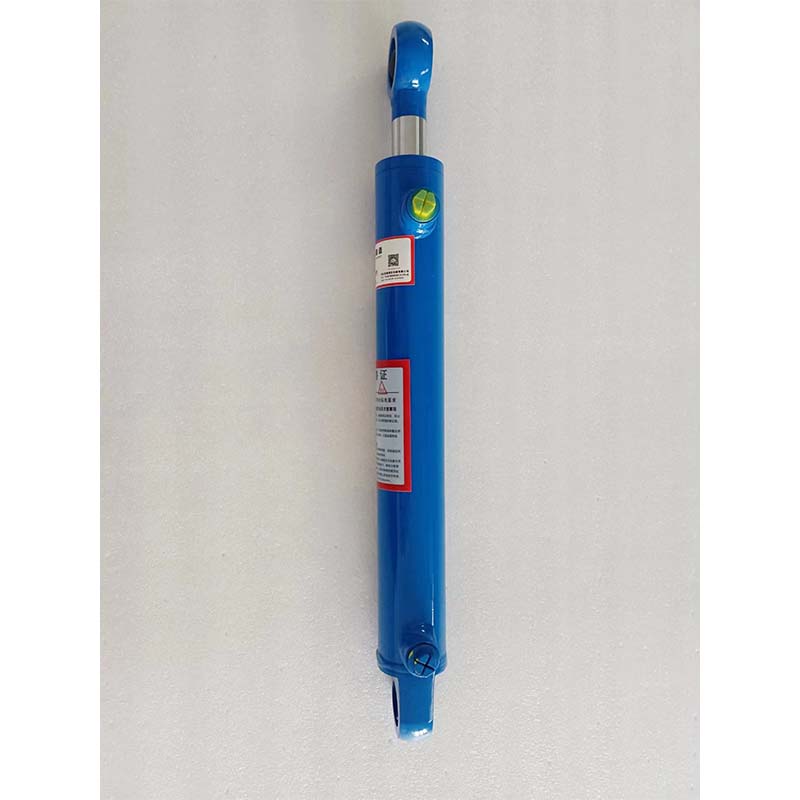Oct . 22, 2024 08:35 Back to list
Hydraulic Lift Cylinder Solutions for Forklift Efficiency and Performance Enhancement
Understanding Forklift Hydraulic Lift Cylinders Essential Components for Material Handling
In the realm of material handling, forklifts play a critical role in the efficient movement of goods. At the heart of these powerful machines lies the hydraulic lift cylinder, an essential component that enables forklifts to lift heavy loads with ease and precision. This article delves into the workings of forklift hydraulic lift cylinders, their types, maintenance tips, and their importance in the overall performance of forklifts.
The Functionality of Hydraulic Lift Cylinders
Hydraulic lift cylinders operate on the principle of hydraulics—using liquid to transmit force. When the forklift operator activates the lift mechanism, hydraulic fluid is pumped into the cylinder. This fluid exerts pressure on the piston inside the cylinder, causing it to move and, in turn, lift the attached forks and any load. The force generated by hydraulic systems allows forklifts to support significantly heavier loads than mechanical systems, making them indispensable in warehouses, construction sites, and manufacturing plants.
Types of Hydraulic Lift Cylinders
Forklift hydraulic lift cylinders generally come in two main configurations single-acting and double-acting cylinders.
1. Single-Acting Cylinders These cylinders can exert force in one direction only—typically to lift a load. They rely on gravity to lower the load back down. Single-acting cylinders are usually simpler and lighter, making them suitable for applications where precise control during lowering is not critical.
2. Double-Acting Cylinders Unlike single-acting cylinders, double-acting cylinders can push and pull. They use hydraulic fluid for both lifting and lowering the load, allowing for greater control and efficiency. This type is more commonly used in modern forklifts, where operators require precise handling of heavy materials.
Importance of Proper Maintenance
forklift hydraulic lift cylinder products

Like all mechanical systems, hydraulic lift cylinders require regular maintenance to function effectively. Neglecting maintenance can lead to decreased efficiency, increased wear, and even complete failure. Here are some essential maintenance tips
1. Regular Inspections Frequent visual inspections of the cylinders for signs of wear or leakage are crucial. Any hydraulic fluid leaks can indicate a seal failure, which should be addressed immediately to avoid loss of pressure.
2. Fluid Quality The hydraulic fluid used must be of the correct type and quality to ensure optimal functioning. Regular checks should be conducted to maintain proper fluid levels and to replace fluid that appears contaminated or degraded.
3. Seal Replacement Seals within hydraulic cylinders are susceptible to wear and should be checked regularly. Replacing worn or damaged seals can prevent leaks and ensure the effective operation of the lift system.
4. Professional Servicing Depending on the usage intensity, forklifts should undergo professional servicing. Trained technicians can conduct comprehensive assessments and repairs that are often beyond the capabilities of standard maintenance routines.
The Role of Hydraulic Lift Cylinders in Performance
The effectiveness of forklift operations largely hinges on the performance of hydraulic lift cylinders. Delays caused by faulty cylinders can lead to productivity losses and safety hazards. Properly functioning hydraulic cylinders enable smooth lifting and lowering, allowing operators to handle loads quickly and safely. Moreover, high-quality hydraulic lift cylinders enhance the overall stability of the forklift, reducing the risk of tipping or accidents during operation.
Conclusion
In conclusion, forklift hydraulic lift cylinders are integral to the functionality and efficiency of material handling operations. Their ability to lift heavy loads reliably makes them a vital component in various industries. Understanding the different types of cylinders, the importance of regular maintenance, and the impact of these components on overall forklift performance is essential for operators and managers alike. Adopting best practices in maintenance and ensuring the use of quality components will not only extend the lifespan of forklifts but also enhance their operational reliability, ultimately leading to improved productivity.
-
Wingspan Power Unit Company Efficient Power Solutions for Industry
NewsJun.04,2025
-
High-Performance Wingspan Power Unit Products Energy Solutions
NewsJun.04,2025
-
Premium Curved Hydraulic Cylinders Durability & Precision
NewsJun.04,2025
-
Heavy-Duty 3x8 Hydraulic Cylinder Premium Industrial Solution
NewsJun.04,2025
-
Explore Advantages of Hollow Plunger Hydraulic Cylinder Benefits
NewsJun.04,2025
-
Premium 3x8 Hydraulic Cylinder Heavy-Duty Strength & Long Life
NewsJun.03,2025
